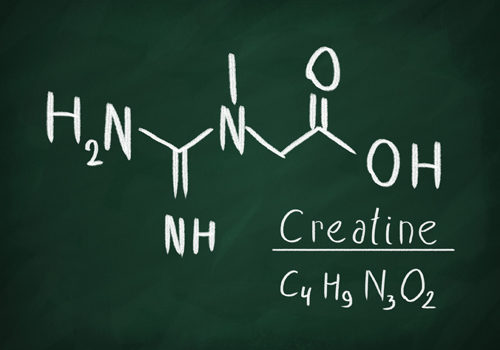Shoppers may have questions about the safety of taking creatine. According to Medical News Today, creatine is “a nitrogenous organic acid produced by the liver that helps supply energy to cells all over the body—particularly in muscle cells. It is made out of three amino acids: l-arginine, glycine and l-methionine” (8).
Richardson adds, “Creatine fuels ATP, the muscles’ energy currency. Research suggests that taking creatine can increase strength, endurance and help with lean muscle gains.”
Titlow also believes that “creatine is essential for any power athlete from powerlifter to sprinter.”
This seems like a product that would be beneficial to the human body, but there are still those that say that taking the supplement may have some side effects, such as stomach pain, nausea and muscle cramping (8). According to Richardson, “You will retain some water from taking creatine,” this appears to be the most common side effect of the supplement.
In most people, these side effects may be avoidable. According to Clouatre, “Most of the safety concerns with the monohydrate form are minor and include caution in maintaining adequate hydration and awareness that muscle strength may increase faster than tendon, ligament and joint strength.”
While creatine is said to be safe, problems may arise, such as kidney damage, if the supplement is taken in high doses (9). Extremely high doses could also prevent the body from making its own creatine (9).
Clouatre recommends that those with liver and kidney issues should seek professional medical advice before starting any supplement. And, make sure shoppers know to stick with the recommended dosage on the package.
Some studies that have shown the benefits of creatine supplementation in non-athletes, though additional research is needed on the topic. One study of 20 people with heart failure found that “short-term creatine supplementation in addition to standard medication lead to an increase in body weight and an improvement of muscle strength” (9).
In a different double-blind study of people with chronic obstructive pulmonary disease (COPD), those who took creatine had “increased muscle mass, muscle strength and endurance and improved their health status compared to those who took a placebo” (9).
In athletes, “creatine supplementation during resistance training allows athletes to complete more repetitions per set of a given exercise and may allow them to ‘recover’ more rapidly between sets” (10).
So all in all, fitness experts believe that creatine can be helpful for healthy individuals, if it is taken in reasonable amounts (10).












